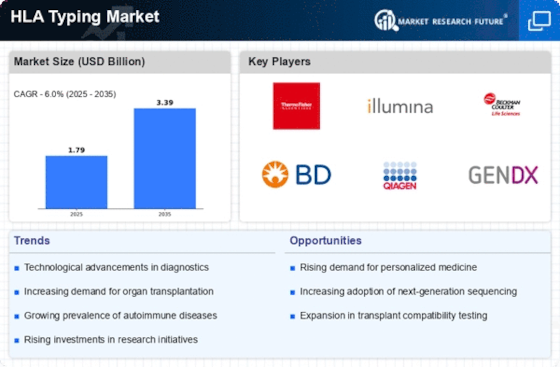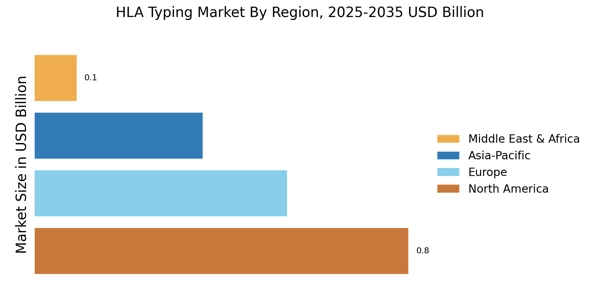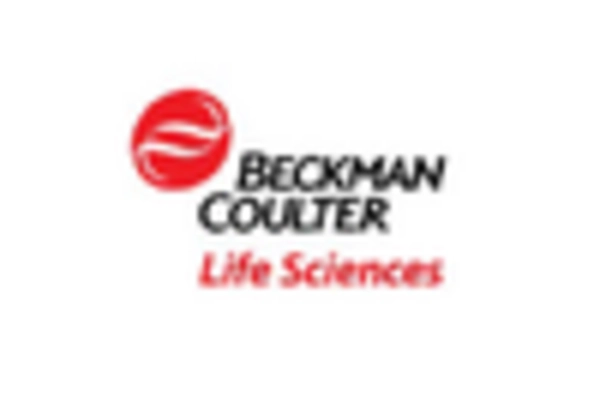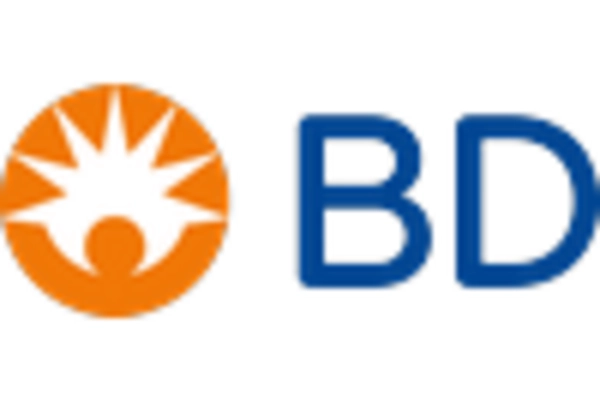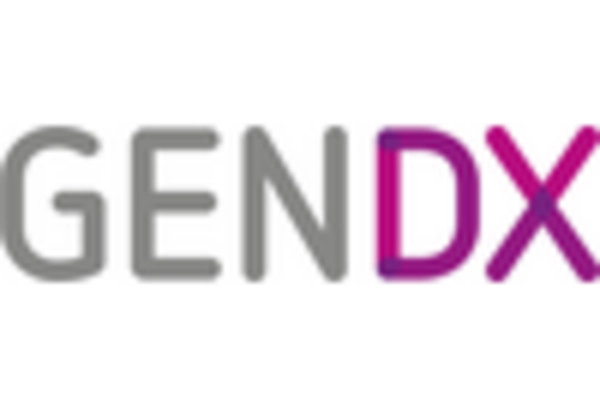Supportive Regulatory Frameworks
The HLA Typing Market is bolstered by supportive regulatory frameworks that promote the adoption of HLA typing technologies. Governments and regulatory bodies are increasingly recognizing the importance of HLA typing in enhancing patient care and safety. Initiatives aimed at standardizing HLA typing procedures and ensuring quality control are likely to foster confidence among healthcare providers and patients alike. This regulatory support not only encourages innovation within the HLA Typing Market but also facilitates access to advanced typing technologies, thereby driving market growth. As regulations evolve, the industry is expected to adapt and thrive in response to these supportive measures.
Advancements in Genomic Technologies
Technological innovations in genomic sequencing and analysis are transforming the HLA Typing Market. The advent of next-generation sequencing (NGS) and other high-throughput technologies has enhanced the accuracy and efficiency of HLA typing processes. These advancements allow for more comprehensive and rapid identification of HLA alleles, which is crucial for organ transplantation and personalized medicine. The market is witnessing a shift towards more sophisticated methodologies that can provide detailed insights into genetic compatibility. As a result, the HLA Typing Market is likely to experience substantial growth, driven by the increasing adoption of these advanced technologies in clinical settings.
Increasing Prevalence of Chronic Diseases
The rising incidence of chronic diseases such as cancer, autoimmune disorders, and organ transplant requirements is a pivotal driver for the HLA Typing Market. As these conditions necessitate precise matching of human leukocyte antigens for effective treatment and transplantation, the demand for HLA typing services is expected to surge. According to recent estimates, the prevalence of chronic diseases is projected to increase significantly, leading to a heightened need for HLA typing to ensure compatibility and improve patient outcomes. This trend indicates a robust growth trajectory for the HLA Typing Market, as healthcare providers seek reliable solutions to address the complexities of chronic disease management.
Growing Investment in Research and Development
Investment in research and development within the HLA Typing Market is on the rise, as stakeholders seek to innovate and improve existing technologies. Increased funding from both public and private sectors is facilitating the exploration of novel HLA typing methods and applications. This trend is indicative of a broader commitment to advancing healthcare solutions that rely on precise genetic matching. As research initiatives yield new insights and methodologies, the HLA Typing Market is poised for expansion, with potential breakthroughs that could redefine standard practices in transplantation and personalized medicine.
Rising Awareness of Transplantation Success Rates
There is a growing awareness among healthcare professionals and patients regarding the importance of HLA typing in improving transplantation success rates. The HLA Typing Market is benefiting from this heightened awareness, as accurate HLA matching is critical for minimizing transplant rejection and enhancing patient survival. Educational initiatives and outreach programs are contributing to this trend, emphasizing the role of HLA typing in organ transplantation. As more individuals become informed about the significance of HLA compatibility, the demand for HLA typing services is expected to rise, further propelling the growth of the HLA Typing Market.


